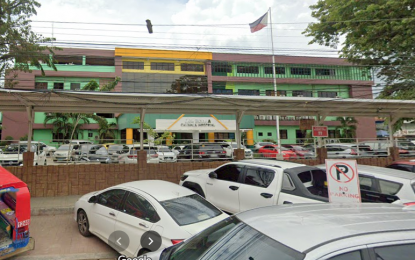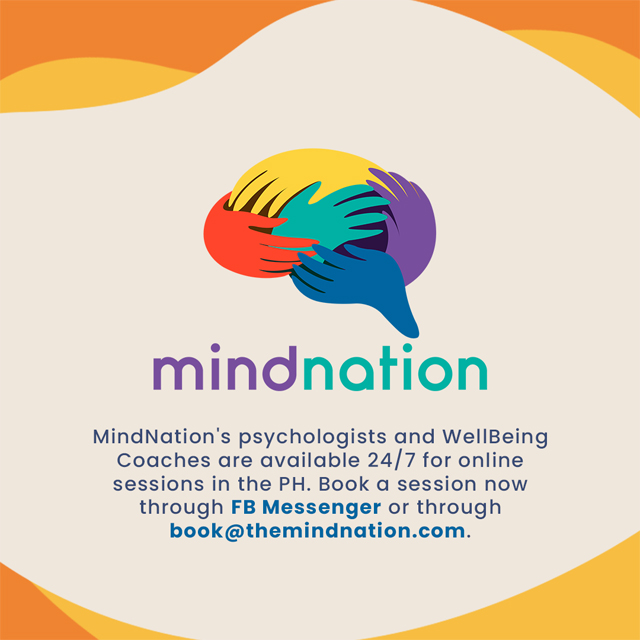The Philippines is undergoing a critical period in its approach to mental health. While progress has been made, significant challenges persist. The pervasive stigma surrounding mental health issues often prevents individuals from seeking necessary support.
Moreover, the limited availability of mental health professionals and resources, particularly in rural areas, exacerbates the problem. Despite these hurdles, a growing awareness of mental health and developing a broader support network are providing hope for those in need.
The Importance of Seeking Help
It is crucial to emphasize that seeking help for mental health concerns is not a sign of weakness but rather a testament to one's strength and resilience. Ignoring mental health issues can have severe consequences, affecting not only the individual but also their family and community. Early intervention is key to preventing the escalation of problems and promoting overall well-being.
Accessing Mental Health Support in the Philippines

Photo from the wires
Government-Run Facilities
The Philippine government has taken steps to address the mental health crisis through the establishment of specialized facilities and programs.
- National Center for Mental Health (NCMH): As the country's leading mental health institution, NCMH provides a comprehensive range of services including inpatient and outpatient care, crisis intervention, and training for mental health professionals.
Website: https://ncmh.gov.ph/
NCMH Crisis Hotline: 989-8727 (24/7)
- Department of Health (DOH): The DOH plays a crucial role in formulating mental health policies, implementing programs, and collaborating with various stakeholders to improve access to mental health services across the country. Their efforts include community-based mental health programs, which aim to bring care closer to the people.
Website: https://doh.gov.ph/
DOH Unified Contact Center: 8654-3333
Note: While the DOH does not have a specific mental health hotline, their unified contact center can provide information and referrals to mental health services.

Photo from UNICEF
Non-Government Organizations (NGOs)
Several NGOs have emerged as vital partners in the mental health landscape, offering a variety of support services.
- Philippine Mental Health Association (PMHA): Dedicated to promoting mental health awareness and providing support, PMHA offers a range of services including counseling, support groups, and educational programs. You can contact them through their website or visit their offices directly.
Website: https://www.pmha.org.ph/
- In Touch Community Services: This organization specializes in crisis intervention and provides counseling and support to individuals experiencing emotional distress.
Website: https://in-touch.org/
Hotlines:
- Manila Lifeline Center: Focusing on suicide prevention, the center offers crisis hotlines and counseling services, providing a lifeline for those in need.
Hotlines:

Photo from the wires
Online Resources and Support Groups
The digital age has facilitated the creation of online platforms and support groups that offer valuable resources and a sense of community for individuals with mental health concerns. Online platforms like Facebook and Instagram host numerous support groups in the Philippines, allowing individuals to connect with others who share similar experiences.
- MentalHealthPH: This platform serves as a hub for information, support, and resources related to mental health.

Photo from the wires
Private Practitioners and Clinics
While the public sector plays a crucial role in mental health care, private practitioners and clinics offer additional options for individuals seeking specialized treatment.
- Psychologists: Trained in psychological assessment and therapy, psychologists provide talk therapy to help individuals understand and manage their mental health conditions.
- Psychiatrists: Medical doctors specializing in mental health, psychiatrists can diagnose mental disorders and prescribe medication.
- Mental Health Clinics: These facilities offer a combination of psychotherapy and medication management, providing comprehensive care for individuals with various mental health needs.
Common Mental Health Challenges in the Philippines
Understanding the most prevalent mental health challenges in the Philippines is essential for tailoring support and resources effectively.
- Depression: A widespread issue, often exacerbated by socioeconomic factors, stress, and cultural stigma.
- Anxiety disorders: Including generalized anxiety disorder, panic disorder, and social anxiety, these conditions can significantly impact daily life.
- Post-traumatic stress disorder (PTSD): Resulting from traumatic experiences, PTSD affects individuals exposed to violence, disasters, or accidents.
- Substance abuse: The misuse of alcohol and drugs is a growing concern, often linked to underlying mental health issues.
- Eating disorders: While less commonly discussed, eating disorders are becoming increasingly prevalent, particularly among young people.
- Bipolar disorder: Characterized by alternating periods of mania and depression.
- Obsessive-compulsive disorder (OCD): Involving recurrent, unwanted thoughts and repetitive behaviors.
- Schizophrenia: A severe mental disorder characterized by delusions, hallucinations, and disorganized thinking.
Specific Mental Health Services and Treatment Options
While government-run facilities, NGOs, and private practitioners provide essential mental health services, understanding the specific treatments available can help individuals make informed decisions about their care.
- Psychotherapy: Often referred to as talk therapy, psychotherapy involves guided conversations with a mental health professional to help individuals understand and manage their emotional challenges. Different therapeutic approaches include:
- Cognitive-behavioral therapy (CBT): Focuses on identifying and changing negative thought patterns and behaviors.
- Psychodynamic therapy: Explores unconscious patterns and conflicts to understand their impact on current behavior.
- Humanistic therapy: Emphasizes self-awareness and personal growth, fostering self-acceptance and positive change.
- Family therapy: Involves family members in the treatment process to improve communication and support.
- Group therapy: Provides a supportive environment where individuals can share experiences and learn from others.
- Medication: In some cases, medication can be an effective treatment for managing symptoms of mental health conditions. It's essential to work closely with a psychiatrist to determine the most appropriate medication and dosage.
- Complementary and Alternative Therapies: While not a replacement for professional treatment, some individuals find complementary therapies helpful in managing their mental health. These can include:
- Mindfulness and meditation
- Yoga and tai chi
- Acupuncture
- Aromatherapy
It's important to note that the effectiveness of these therapies varies from person to person. It's advisable to consult with a mental health professional before starting any new treatment.
Seeking Help for Loved Ones
Supporting a loved one with mental health challenges requires understanding, patience, and empathy.
- Open Communication: Create a safe and supportive environment where your loved one feels comfortable sharing their feelings.
- Active Listening: Demonstrate genuine interest and attention by actively listening to their concerns without judgment.
- Encourage Professional Help: Encourage your loved one to seek professional support, emphasizing the benefits of therapy or medication.
- Educate Yourself: Learn about mental health conditions to better understand what your loved one is experiencing.
- Self-Care: Prioritize your well-being to avoid burnout.
Overcoming Stigma
Stigma remains a significant barrier to seeking help for mental health. To create a more supportive environment:
- Challenge Negative Stereotypes: Educate yourself and others about mental health to dispel misconceptions.
- Share Your Story: If comfortable, sharing your own experiences can help reduce stigma and inspire others.
- Support Mental Health Initiatives: Participate in or contribute to organizations promoting mental health awareness.
- Practice Empathy and Kindness: Treat individuals with mental health conditions with respect and understanding.
Children and Adolescent Mental Health
Mental health challenges can emerge during childhood and adolescence. Early intervention is crucial for their overall well-being.
- Be Aware of Signs: Pay attention to changes in behavior, mood, or school performance.
- Create a Supportive Environment: Foster open communication and provide emotional support.
- Seek Professional Help: Consult with a child or adolescent mental health specialist if concerns arise.
Conclusion
Addressing mental health in the Philippines requires a collective effort. By breaking down stigma, expanding access to care, and promoting self-care, we can create a society where mental well-being is prioritized. Remember, seeking help is a sign of strength, and recovery is possible.
Remember: If you or someone you know is experiencing a mental health crisis, please contact the National Center for Mental Health's crisis hotline at 1553.






















